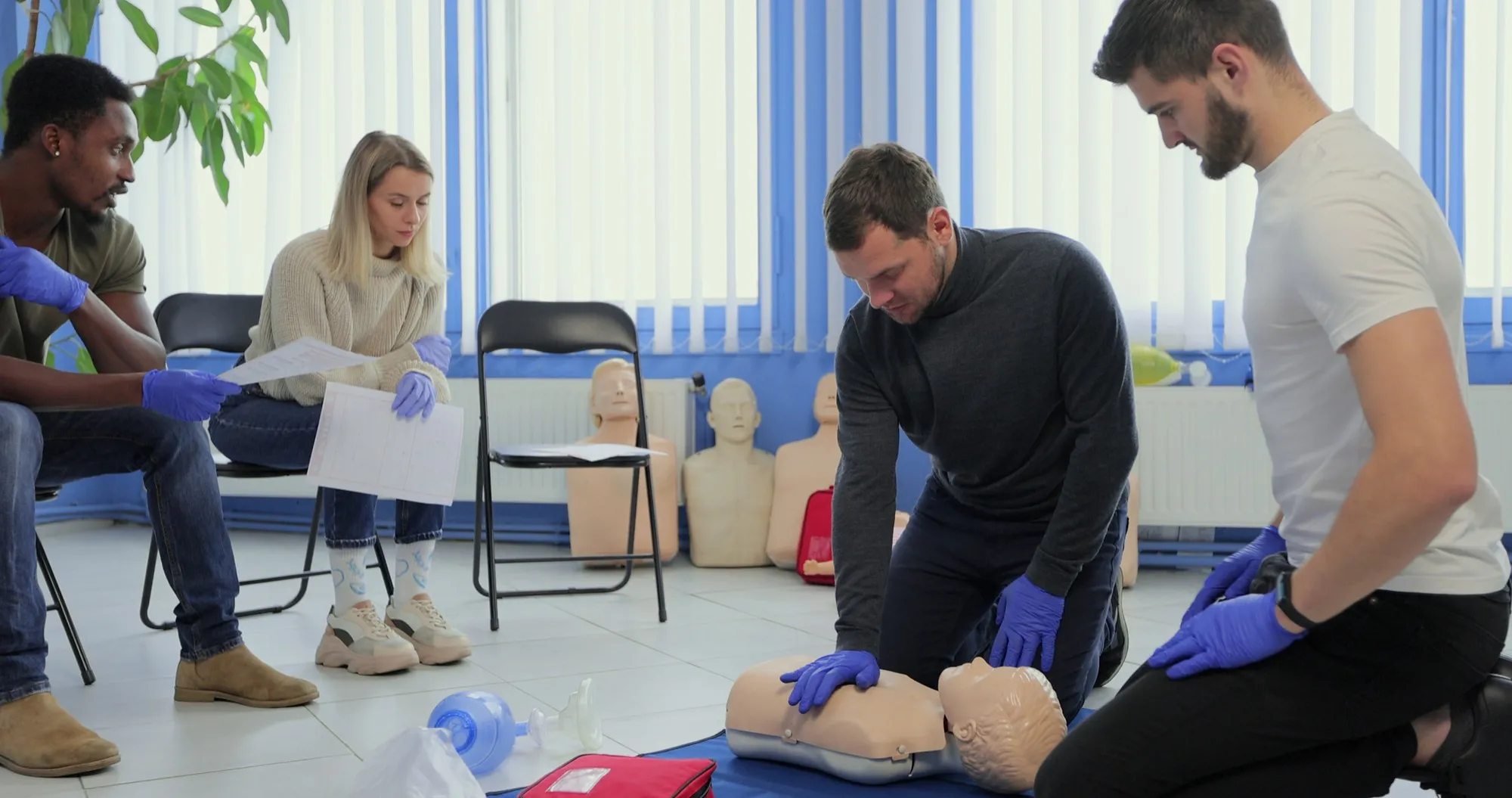In the realm of emergency medicine, cardiopulmonary resuscitation (CPR) is a critical component that can significantly affect patient outcomes. With the continual evolution of guidelines and practices, the importance of well-conducted research to inform these changes is paramount. The American Heart Association (AHA) places a great deal of importance on research as they update their guidelines for CPR and emergency cardiovascular care. A recent cross-sectional review has shed light on potential concerns with the underlying evidence that forms the bedrock of these guidelines.
Published in BMJ Open, researchers conducted a risk of bias assessment of randomized controlled trials (RCTs) that were referenced in the 2015 update of the AHA CPR and emergency cardiovascular care guidelines. The goal was to scrutinize these trials to see if bias may have impacted their outcomes and, subsequently, the guidelines themselves. The findings indicate that many of these trials have a high risk of bias, particularly in non-drug trials, which could potentially undermine the effectiveness and reliability of the guidelines built upon them.
Let’s delve deeper into the study and its implications in the evidence-based medical practice.
The Study
The review, with publication DOI 10.1136/bmjopen-2018-023725, was meticulously planned and detailed in BMJ Open [1]. It was conducted by Yongil Cho and colleagues at the Department of Emergency Medicine, Hanyang University College of Medicine in Seoul, Republic of Korea. The researchers chose to use the Cochrane Collaboration’s tool for assessing the risk of bias [2], a widely-respected framework that examines potential bias across six domains: random sequence generation, allocation concealment, blinding of participants and personnel, blinding of outcome assessment, incomplete outcome data, and selective reporting.
Out of the 273 RCTs assessed, a staggering 78.8% demonstrated a high risk of bias in the domain of blinding of participants and personnel. When the data was stratified, most of the RCTs that exhibited this risk were of a non-drug nature (87.7%). In comparison, drug trials fared better in terms of the blinding of participants and personnel, with a low risk of bias recorded in 73.0% of the cases.
Underlying Issues Revealed
A pronounced area of concern highlighted by the study was the unclear risk of bias for the domains of random sequence generation and allocation concealment. Before the advent of the Consolidated Standards of Reporting Trials (CONSORT) update in 2010 [3], the unclear risk of bias proportions was 65.4% and 57.7% respectively. While there was an improvement following the CONSORT update, with figures dropping to 31.3% and 32.2%, these numbers still suggest a considerable lack of clarity and potential for bias in the methodology of the trials.
Why This Matters
When RCTs possess a high risk of or unclear potential for bias, it becomes challenging to trust the strength and direction of the evidence they provide. This consequently affects the reliability of guidelines that medical professionals across the globe adhere to.
The study accentuates the importance of rigorous methodology and reporting, and the need for adherence to the CONSORT guidelines. Such adherence to standardized reporting can enhance transparency and minimize the risk of bias.
Implications for Healthcare
That emergency medicine relies heavily on robust and discerning evidence-based guidelines is an understatement. The implications of potential biases within the founding research are far-reaching. Topics like the methods of CPR and post-cardiac arrest management could be influenced by the biased evidence, leading practitioners to employ suboptimal or incorrect techniques.
The call to action here is twofold. Firstly, authors must ensure CONSORT guidelines are incorporated in their research [4]. Secondly, readers must approach CPR guidelines critically, acknowledging potential biases. Additionally, the adoption of tools like the Cochrane Collaboration’s risk of bias tool can help standardize the assessment of RCTs.
Steps Forward
While this study sheds light on the issue, moving forward requires concerted efforts to address the demonstrated inadequacies. Journals and peer reviewers can play a pivotal role by mandating the use of reporting guidelines and risk-of-bias tools. Educational initiatives, such as workshops on systematic and rigorous trial design and reporting, might serve as a medium to enhance the overall quality of research.
Conclusion
The study by Yongil Cho et al. has brought to the forefront the significant risk of bias in RCTs that underpin the 2015 AHA guidelines for CPR and ECC. This evaluation not only urges a paradigm shift in research and reporting practices but also an informed skepticism among healthcare providers. Adherence to standardized reporting guidelines and rigorous peer review processes can mitigate the risk of bias and improve the reliability of the guidelines that millions of healthcare professionals rely upon.
References
1. Cho Y, Kim C, Kang B. Risk of bias assessment of randomised controlled trials referenced in the 2015 American Heart Association guidelines update for cardiopulmonary resuscitation and emergency cardiovascular care: a cross-sectional review. BMJ Open [Internet]. 2020 [cited YYYY MM DD];9(5):e023725. Available from: doi:10.1136/bmjopen-2018-023725.
2. Higgins JP, Altman DG, Gotzsche PC, et al. The Cochrane Collaboration’s tool for assessing risk of bias in randomised trials. BMJ [Internet]. 2011 [cited YYYY MM DD];343:d5928. Available from: doi:10.1136/bmj.d5928.
3. Schulz KF, Altman DG, Moher D, for the CONSORT Group. CONSORT 2010 Statement: updated guidelines for reporting parallel group randomised trials. Ann Intern Med [Internet]. 2010 [cited YYYY MM DD];152:726-732. Available from: doi:10.7326/0003-4819-152-11-201006010-00232.
4. Turner L, Shamseer L, Altman DG, et al. Does use of the CONSORT Statement impact the completeness of reporting of randomised controlled trials published in medical journals? A Cochrane review. Syst Rev [Internet]. 2012 [cited YYYY MM DD];1:60. Available from: doi:10.1186/2046-4053-1-60.
Keywords
1. AHA CPR Guidelines Bias
2. Risk of Bias in RCTs
3. Consortium Standards Reporting Trials
4. Evidence-Based Emergency Medicine
5. CPR Research Integrity
This review provides a critical examination of the trials fundamental to CPR guidelines, a topic that undoubtedly attracts significant international attention within the scientific and medical communities. With such insights, we move towards tightening the rigor of emergent care research, ultimately aiming to enhance patient care and outcomes in critical care settings worldwide.
